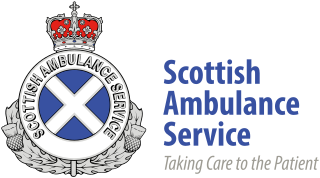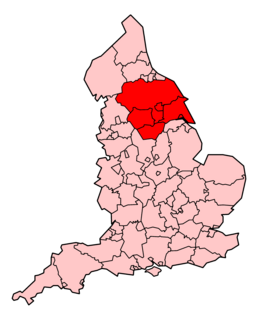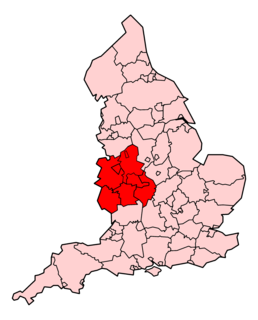This article has multiple issues. Please help improve it or discuss these issues on the talk page . (Learn how and when to remove these template messages) (Learn how and when to remove this template message)
|

This article has multiple issues. Please help improve it or discuss these issues on the talk page . (Learn how and when to remove these template messages) (Learn how and when to remove this template message)
|

In 2020, the United Kingdom was suffering from the Coronavirus/Covid-19 pandemic and as a result the British Government and its departments were under strain. The National Health Service (NHS) joined forces with the Royal Voluntary Service to create additional, organised personnel . [1] This would operate in England only. Other schemes were available in other parts of Great Britain.
The idea came to create Volunteer Responders, who were members of the public who would give up their spare time to support the health and public services.
Community Response volunteer: This role involves collecting shopping, medication or other essential supplies for someone who is self-isolating, and delivering these supplies to their home.
Patient Transport volunteer: This role supports the NHS by providing transport to patients who are medically fit for discharge, and ensuring that they are settled safely back in to their home.
NHS Transport volunteer: This role involves transporting equipment, supplies and/or medication between NHS services and sites, it may also involve assisting pharmacies with medication delivery.
Check-in and Chat volunteer: This role provides short-term telephone support to individuals who are at risk of loneliness as a consequence of self-isolation.
In short, the mission of the volunteers was:
Volunteer Responders would use their own transport to provide the above services. Volunteers would not receive any formal training nor equipment, but would receive a welcome pack (specific to the role they would be undertaking) and link for a mobile application (app) [2] .
The idea then was for volunteers to acquaint themselves with their responsibilities and use the GoodSAM app to dispatch themselves to calls for service. [2]
Volunteers would have an interactive, online map on their app and could see both other volunteers (denoted by green men) and calls for service in their area (denoted by a red man with bandaged head [as the app was originally developed for medical professionals to respond to cardiac arrests locally]).
A siren would sound, as an alert, from then a volunteer could choose to respond or not.
Volunteers would not receive any payment or major expenses, although fuel could be claimed back.
For the service in Wales, see NHS Direct Wales

The London Ambulance Service is an NHS trust responsible for operating ambulances and answering and responding to urgent and emergency medical situations within the London region of England. The service responds to 999 and 111 phone calls, providing triage and advice to enable an appropriate level of response.
A consultant pharmacist is a pharmacist who works as a consultant providing expert advice on the use of medications or on the provision of pharmacy services to medical institutions, medical practices and individual patients.
District Nurses work in the United Kingdom's National Health Service, managing care within the community and lead teams of community nurses and support workers. The role requires registered nurses to take a NMC approved specialist practitioner course. Duties generally include visiting house-bound patients and providing advice and care such as palliative care, wound management, catheter and continence care and medication support. Their work involves both follow-up care for recently discharged hospital inpatients and longer term care for chronically ill patients who may be referred by many other services, as well as working collaboratively with general practitioners in preventing unnecessary or avoidable hospital admissions.

The Scottish Ambulance Service is part of NHS Scotland, which serves all of Scotland's population., The Scottish Ambulance Service is governed by a special health board and is funded directly by the Health and Social Care Directorates of the Scottish Government.

The Welsh Ambulance Services NHS Trust is the national ambulance service for Wales and one of the three NHS trusts in the country. It was established on 1 April 1998 and has 2,576 staff providing ambulance and related services to the 3.1 million residents of Wales.
LloydsPharmacy is a British pharmacy company, with more than 1,500 pharmacies. It has around 17,000 staff and dispenses over 150 million prescription items annually. It is owned by the German company Celesio, formerly GEHE AG, which is in turn owned by the American McKesson Corporation.

St John Ambulance is a volunteer-led, charitable non-governmental organisation dedicated to the teaching and practice of first aid in England. Along with St John Cymru-Wales and St John Ambulance Northern Ireland, St John Ambulance is one of three affiliates of the international St John Ambulance movement in the United Kingdom.

Yorkshire Ambulance Service (YAS) is the NHS ambulance service covering most of Yorkshire in England. It was formed on 1 July 2006 following the mergers of the former West Yorkshire Metropolitan Ambulance Service (WYMAS), South Yorkshire Ambulance Service (SYAS) and Tees, East and North Yorkshire Ambulance Service (TENYAS). It is one of ten NHS Ambulance Trusts providing England with emergency medical services, free at the point of care and as part of the National Health Service it receives direct government funding for its role.

South Central Ambulance Service NHS Foundation Trust (SCAS) is the ambulance service for the counties of Buckinghamshire, Oxfordshire, Berkshire and Hampshire. It is a foundation trust of the National Health Service, and one of 10 NHS ambulance trusts in England.

The East of England Ambulance Service is an NHS trust responsible for providing National Health Service (NHS) ambulance services in the counties of Bedfordshire, Cambridgeshire, Essex, Hertfordshire, Norfolk and Suffolk, in the East of England region. These consist of 5.8 million people and 7,500 square miles.

The Great Western Ambulance Service NHS Trust (GWAS) was a National Health Service (NHS) trust which provided emergency and non-emergency patient transport services to Bath and North East Somerset, Bristol, Gloucestershire, North Somerset, Swindon and Wiltshire, in South West England. It was formed on 1 April 2006 by the merger of the Avon, Gloucestershire and Wiltshire ambulance services. The ambulance service was acquired by neighbouring Foundation Trust South Western Ambulance Service (SWASFT) on 1 February 2013.

The West Midlands Ambulance Service University NHS Foundation Trust (WMAS) is the second-largest ambulance service, and the first university ambulance trust in the UK. It is the authority responsible for providing NHS ambulance services within the West Midlands region of England.
Prescription charges, in the English NHS are charges made for prescription medications. The majority of adults are required to pay them. Charges were abolished in NHS Wales in 2007, Health and Social Care in Northern Ireland in 2010 and by NHS Scotland in 2011. In 2010/11, in England, £450m was raised through these charges, some 0.5% of the total NHS budget. In 2019 the charge was £9 per item.

Emergency medical services in the United Kingdom provide emergency care to people with acute illness or injury and are predominantly provided free at the point of use by the four National Health Services of England, Scotland, Wales, and Northern Ireland. Emergency care including ambulance and emergency department treatment is only free to UK Nationals and a charge may be made to those not entitled to free NHS Care.

The National Health Service (NHS) is the publicly funded healthcare system in England, and one of the four National Health Service systems in the United Kingdom. It is the second largest single-payer healthcare system in the world after the Brazilian Sistema Único de Saúde. Primarily funded by the government from general taxation, and overseen by the Department of Health and Social Care, the NHS provides healthcare to all legal English residents and residents from other regions of the UK, with most services free at the point of use. Some services, such as emergency treatment and treatment of infectious diseases, are free for everyone, including visitors.
A pharmacy is a retail shop which provides prescription drugs, among other products. At the pharmacy, a pharmacist oversees the fulfillment of medical prescriptions and is available to give advice on their offerings of over-the-counter drugs. A typical pharmacy would be in the commercial area of a community.
Electronic prescribing is the computer-based electronic generation, transmission, and filling of a medical prescription, taking the place of paper and faxed prescriptions. E-prescribing allows a physician, pharmacist, nurse practitioner, or physician assistant to use digital prescription software to electronically transmit a new prescription or renewal authorization to a community or mail-order pharmacy. It outlines the ability to send error-free, accurate, and understandable prescriptions electronically from the healthcare provider to the pharmacy. E-prescribing is meant to reduce the risks associated with traditional prescription script writing. It is also one of the major reasons for the push for electronic medical records. By sharing medical prescription information, e-prescribing seeks to connect the patient's team of healthcare providers to facilitate knowledgeable decision making.
EMIS Health, formerly known as Egton Medical Information Systems, supplies electronic patient record systems and software used in primary care, acute care and community pharmacy in the United Kingdom. The company is based in Leeds. It claims that more than half of GP practices across the UK use EMIS Health software and holds number one or two market positions in its main markets.
Pharmacy in the United Kingdom has been an integral part of the National Health Service since it was established in 1948. Unlike the rest of the NHS pharmacies are largely privately provided apart from those in hospitals, and even these are now often privately run.